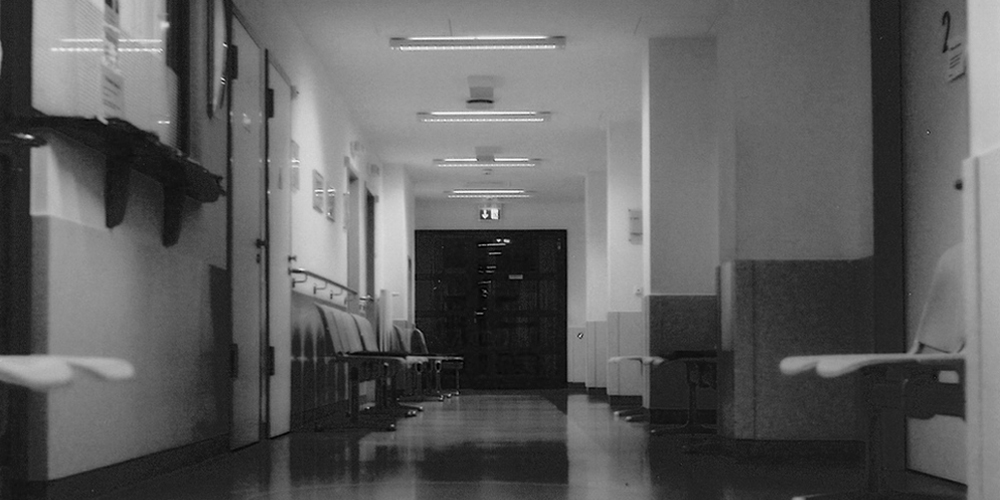The moment is now: how can the NHS respond to the Francis report?
At the moment, there is widespread consensus that fundamental changes are required if the failures at Mid Staffordshire are to be avoided. The NHS must find a way to respond to the Francis report and deliver high quality and safe...
At the moment, there is widespread consensus that fundamental changes are required if the failures at Mid Staffordshire are to be avoided. The NHS must find a way to respond to the Francis report and deliver high quality and safe care. I believe the report will be an important turning point in this journey – but only if some of the fundamental truths exposed in the report are addressed and acted upon.
Now is the time to rethink our approach to health and social care, and to invest in NHS staff to give them the opportunity to provide the care that they would want for their loved ones. We need a system that can support care giving and one that is able to cope with present and future demands. Francis stated in his report that ‘leadership’ was lacking at Mid Staffs. A key component of leadership is ‘courage’ – it is courage at all levels that will ensure the moment is not lost and that the current consensus becomes the spring board for a better way of doing healthcare that is better for NHS staff and the patients we care for.
‘He went to A&E suffering from abdominal pain. A junior doctor insisted it was abdominal discomfort but he insisted it was appendicitis. He asked to see a specialist but was ignored and discharged. The following day the patient collapsed when his appendix burst. The patient was eventually operated on and was recovering on Ward 6 – he was rarely offered water and his catheter was left to overflow.’’
That was the story of one patient who attended Mid Staffordshire NHS Foundation Trust between January 2005 and March 2009 . There were hundreds of similar stories of poor care: each one personal and each one happening in a ‘moment’ which can never be recaptured. It is estimated that more than a thousand people died needlessly at the hospital over four years. No one is able to quantify the pain and suffering caused to patients, families and friends.
In 2010, Robert Francis QC was commissioned by the government to set up a public inquiry, building upon the findings of his first inquiry into the failings of Mid Staffs – in essence to answer three questions: what happened, what went wrong and how do we fix it? The report was published in February 2013, nearly 400 pages long, set out in three volumes and making 290 recommendations. The government quickly added another recommendation – the appointment of an inspector of hospitals.
On 26 March 2013, the government published its initial response to Francis in Patients First and Foremost. The government acknowledged improvements to preventing and detecting problems, reacting to them promptly, improving accountability and ensuring staff are trained and motivated. In some quarters, these recommendations have been welcomed; including a new ratings system for hospitals based on the way Ofsted assess school performance. Other commentators have been critical, with question marks remaining over the implementation of the statutory duty of candour; minimum staffing levels, roles/responsibilities under the regulatory regime and the robustness of the current system to meet its future challenges.
The Francis report is detailed and covers every angle – it’s easy to miss the point. What do we do with the report? Amongst the detail there are some universal truths that we can use to help direct, align and inspire action within the NHS and across society. We need to use the report as a catalyst to act and to act now.
In the end, the failure rested with those providing the care. There may have been contributory factors – big or small, such as oppressive management, inadequate staffing, a board whose priorities were too focused elsewhere and a system that was unable to recognise the signs much less do something about it.
However, when all is said and done, healthcare is down to an individual working within a team, doing the right thing, often in the most difficult of circumstances at a moment in time. So any solution must be centered on those giving care – supporting and investing in them and to provide a framework where individuals can come together, optimise their talents and work with clarity and self-belief.
We have been here before, with more than 30 public inquiries conducted into failures of patient care since the inception of the NHS. This within the context of a NHS that has been more reformed and restructured in the last 15 years than in the previous 50. Politicians are good at coming up with the new initiative and then moving on. Will this inquiry be any different? The signs are not good but it must be.
Most people working in the NHS recognise that change is needed at various levels of the system. However, health professionals are often unsure how to go about it – with conflicting visions and competing priorities being presented. They are tired of constant reorganistion; deep down they have no faith that transformation is possible – hearts and minds are not won.
I believe we need to focus on a few truths highlighted in the Francis report and use these to inform some changes at various different levels: front line; board; regulatory; health and social care system and political. This will maximise the chance that on any given day, the person giving the care does the ‘right thing’ and collectively we provide the quality of care that we would wish for ourselves and loved ones. At the moment, we have consensus that change is needed – let’s not throw it away.
